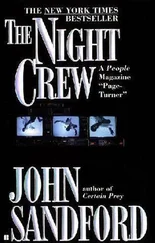With her hands clasped calmly in front of her on the desk, she said, “Good morning, Mr. Crow. I presume your Chinese visitors”—she paused very briefly at that word—“are listening in to this. If not, please let them know that I am glad we could offer them rescue and I have forwarded their proposal to my advisers for discussion. Convey my sincerest hope for a speedy resolution to this situation. Also, I’ve spoken to the chief of staff, who knows Admiral Fang-Castro quite well, and says that she can be quite the hard-ass. Inform the admiral that we do not consider her a prisoner of war at this point and that she can negotiate with the Chinese on behalf of the crew. She is not to negotiate the release of the QSUs or any other alien information. That is ours, and ours alone, pending discussions with the Chinese government. That’s all for now, and TTTFO.” Her hand reached over to click the off switch and the screen went blank.
Crow coughed, said, “Sorry, I’m a little nervous. You heard what we heard. Where does that leave us?”
Sun said, “Political doublespeak. I am familiar with it. They will discuss and stall for as long as they can. Eventually they will have to give in. We hold the ship. One thing I did not understand—this ‘TTTFO.’ Code of some sort, Mr. Crow?”
He smiled blandly. “Of a sort, Commander Cui. It’s diplomatic shorthand for the usual boilerplate formalities. Extend the other party the usual courtesies, try not to start a war, et cetera, et cetera.”
Fang-Castro joined the conversation. “So we have nothing of substance back. I didn’t expect we would. You are asking a lot of Washington, regardless of how much control you have over this vessel. Excuse my bluntness, but they are going to take some time over this.”
Sun said, “Double shit.”
“Yes. Now, as legal commander of this vessel, I need to talk in private with Mr. Crow. Regardless of what you may have effected, in the eyes of the U.S. government, I remain the only legitimate authority on this ship. I need to speak to Crow frankly about this situation, and through him, to the President. We can’t have those discussions in your presence. It would be like me expecting to sit in on the private policy discussions of your top party officials in Beijing. If we can’t have opportunities to talk in private, we can’t discuss anything of substance. It simply will not happen—Washington would never permit it.”
Crow did his best to look both sincere and harmless, and added, “I understand you’d consider this a risk. The admiral and I can meet here, and you can search my quarters again. You won’t find any weapons or equipment a diplomat in my position wouldn’t be expected to have. We have no arms, no means to communicate with the rest of the crew, and we will be locked in.”
Sun hated the idea. Who knew what mischief they might dream up? Realistically, though, they were right. If this impasse were to end, they’d have to do more than glare at each other. Reluctantly, she nodded to Cui. “This is getting us nowhere, and we have matters of our own to discuss.”
With curt nods, the Chinese left the room and the door snicked shut.
Fang-Castro turned to Crow. “David, I didn’t think you had it in you. You had me totally convinced.”
Crow raised an eyebrow. “Of what? That I could be diplomatic? It’s necessary at times.”
She chuckled. “No, it’s more that you can come off as so middle management.”
“Much of the time, I need to be not-noticed.”
She understood. “One question, though—that TTTFO? That seemed to catch you up for a second.”
“She surprised me with that,” he said. “It’s White House shorthand, usually applied to members of Congress. Means ‘Tell them to fuck off.’”
The Chinese returned to Crow’s quarters about an hour and a half after they left. They knocked before entering, to Fang-Castro’s surprise.
Cui smiled. “We understand your need for private communication and we want a proper resolution to the problem. In line with that, we’ve drawn up a schedule for the release of your people from their quarters. Not all at the same time, of course, but on a rotating schedule. I believe my people have also distinguished between crew members who are necessary to the continued operation of the Nixon and those who are merely passengers, like our scientists were.
“I think we have drawn up an acceptable duty roster, but please review it. We would also like to do a complete Engineering shift change. They have already been on duty for twice the normal time. We don’t wish there to be any misunderstanding with the on-duty or off-duty teams, so we are providing you with a comm channel to both. Please inform them that you are authorizing this shift change and that we will be shepherding the new engineering team down and the old one back to their quarters.”
Fang-Castro was rankled by having the terms of operation of her ship dictated to her. She swallowed her annoyance; the Chinese were doing the right things, but… they shouldn’t have been there at all.
She issued the orders. “You don’t think you can keep control of the ship indefinitely, do you? There just aren’t enough of you to monitor everyone, everywhere, all the time.”
Lieutenant Sun shook her head. “We don’t expect to hold control indefinitely. Just until we get what we want: an equal share in the alien discoveries.”
“We’ve already explained that full access to our computer system and data files is impossible without a presidential directive to release the crypto key, and hell is likely to freeze over before that happens,” she said. “You might as well shoot us now, if that’s what you’re waiting for.”
Crow said, “You’re both military, so I’m sure you can understand this: getting superuser status on that system would be a breach of U.S. security on an unprecedented level. You’d have access to the designs and engineering information for the Nixon , all communications we’ve had with Earth, the security and crypto protocols that supported those communications, and every bit of political or military information that happens to be in the system. That would compromise U.S. operations for years. At the very least we’d have to treat every channel of communication as unsecured until it could be completely replaced and the code rewritten from scratch. If you can start mining our datastore, you don’t just learn what data we’re securing, you learn how we do it. It’s not even open to consideration. If you think it is, imagine what your own superiors would say to the idea that you give us the key to the Celestial Odyssey ’s datastore.”
Cui looked at her feet: almost a concession of defeat. Then her eyes came up: “But the QSUs aren’t encrypted. You give us two QSUs, and two readers, you jeopardize nothing—”
Sun: “Except your plan to dominate Earth’s technology for a few hundred years… which is exactly what we can’t allow. Give us the QSUs.”
Fang-Castro said, “With our ship and people being held hostage, I can pretty much guarantee that Santeros won’t negotiate over the QSUs. Even if she wasn’t mightily pissed off. Her policy has been to never, ever give in to ransom demands.”
Sun opened her mouth to answer, but Crow jumped in: “We need to relax. All of us. Leave it to the governments. Right now, the main thing we all need is patience.”
The Chinese left again.
Fang-Castro said to Crow, “If we hint that we’re willing to give a centimeter, Cui and Sun’ll conclude we’re vulnerable to pressure, and they will ratchet up that pressure in the expectation we will ultimately capitulate on all demands. We won’t, but they will assume we will. They will make things as unpleasant as they possibly can to reach that objective.”
Читать дальше








